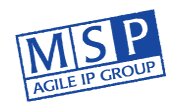Best Patent Lawyers in Republic of Lithuania
Share your needs with us, get contacted by law firms.
Free. Takes 2 min.
Or refine your search by selecting a city:
List of the best lawyers in Republic of Lithuania
About Patent Law in Republic of Lithuania
Patent law in the Republic of Lithuania is governed by the Law on Patents. This law regulates the protection of inventions and grants exclusive rights to inventors for a certain period of time. In order to obtain a patent in Lithuania, the invention must be new, involve an inventive step, and be capable of industrial application.
Why You May Need a Lawyer
You may need a lawyer for patent-related issues in Lithuania if you need to file a patent application, defend your patent against infringement, or resolve disputes related to patents. A lawyer can help you navigate the legal complexities of patent law and ensure that your rights are protected.
Local Laws Overview
Some key aspects of patent law in Lithuania include the requirement for patents to be registered with the State Patent Bureau, the availability of protection for both product and process patents, and the duration of patent protection being 20 years from the date of filing the application.
Frequently Asked Questions
1. What is a patent?
A patent is a legal right granted to the inventor of a new invention that gives them the exclusive right to make, use, and sell the invention for a certain period of time.
2. How do I apply for a patent in Lithuania?
You can apply for a patent in Lithuania by submitting an application to the State Patent Bureau along with a description of the invention and any necessary documents.
3. How long does a patent last in Lithuania?
A patent in Lithuania lasts for 20 years from the date of filing the application.
4. What can I patent in Lithuania?
You can patent inventions that are new, involve an inventive step, and are capable of industrial application.
5. What rights does a patent grant me in Lithuania?
A patent grants you the exclusive right to make, use, and sell the invention in Lithuania for the duration of the patent.
6. What should I do if someone infringes on my patent in Lithuania?
If someone infringes on your patent in Lithuania, you can take legal action against them to enforce your rights and seek compensation for any damages.
7. Can I license my patent in Lithuania?
Yes, you can license your patent in Lithuania to allow other parties to use the invention in exchange for a fee or royalty.
8. How can a lawyer help me with patent issues in Lithuania?
A lawyer can help you with patent issues in Lithuania by providing legal advice, drafting and filing patent applications, defending your patent against infringement, and resolving disputes related to patents.
9. How much does it cost to obtain a patent in Lithuania?
The cost of obtaining a patent in Lithuania can vary depending on the complexity of the invention and the services of the patent attorney you choose to work with.
10. Are there any specific requirements for patent applications in Lithuania?
Yes, patent applications in Lithuania must include a description of the invention, claims defining the scope of protection sought, and any necessary drawings or other supporting documents.
Additional Resources
For more information on patent law in Lithuania, you can visit the website of the State Patent Bureau or consult with a qualified patent attorney.
Next Steps
If you need legal assistance with patent issues in Lithuania, we recommend contacting a specialized patent lawyer who can guide you through the process of obtaining and enforcing patents in the country.
Lawzana helps you find the best lawyers and law firms in Republic of Lithuania through a curated and pre-screened list of qualified legal professionals. Our platform offers rankings and detailed profiles of attorneys and law firms, allowing you to compare based on practice areas, including Patent, experience, and client feedback.
Each profile includes a description of the firm's areas of practice, client reviews, team members and partners, year of establishment, spoken languages, office locations, contact information, social media presence, and any published articles or resources. Most firms on our platform speak English and are experienced in both local and international legal matters.
Get a quote from top-rated law firms in Republic of Lithuania — quickly, securely, and without unnecessary hassle.
Disclaimer:
The information provided on this page is for general informational purposes only and does not constitute legal advice. While we strive to ensure the accuracy and relevance of the content, legal information may change over time, and interpretations of the law can vary. You should always consult with a qualified legal professional for advice specific to your situation.
We disclaim all liability for actions taken or not taken based on the content of this page. If you believe any information is incorrect or outdated, please contact us, and we will review and update it where appropriate.
Browse patent law firms by city in Republic of Lithuania
Refine your search by selecting a city.















